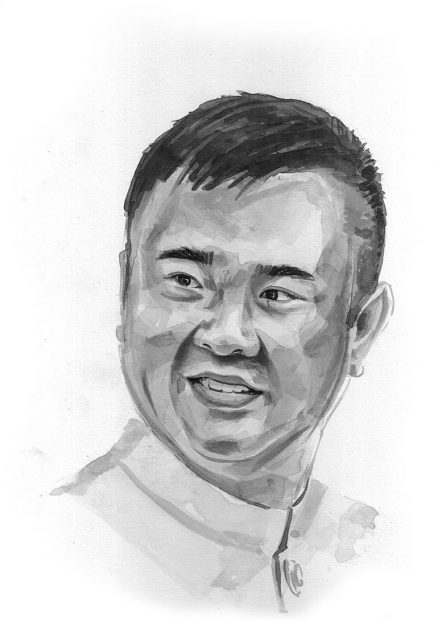A series of scandalous leaked Facebook chats briefly turned the spotlight on Cambodian Prime Minister Hun Sen’s introverted son, the head of military intelligence, late last year. But who is Hun Manith?

It started with the sale of an old mobile phone. In late November, messages between one of Cambodian Prime Minister Hun Sen’s sons and a turncoat opposition activist, social media celebrity Thy Sovantha, were leaked online. In messages exchanged in familiar tones, containing a liberal use of emojis, the pair plotted over protests against the country’s deputy opposition leader, Kem Sokha.
A spokesman for the ruling Cambodian People’s Party (CPP) told local media the son in question, Hun Manith, had sold on a phone without deleting his Facebook chats – not exactly the discreet behaviour you might expect from the defence ministry’s head of military intelligence.
“They confirmed what had long been suspected, and titillated with their banter to prove it,” said Sophal Ear, associate professor of diplomacy and world affairs at Occidental College, Los Angeles, and author of Aid Dependence in Cambodia: How Foreign Assistance Undermines Democracy. “There was talk of money changing hands and plain old machinations. It’s just fascinating to read and listen to all this; you can’t make it up.”
While the scandalous chatter saw Manith’s name splashed across newspaper pages during a few days of media reports, the attention soon died down. “The fact that it is not as big a news or a scandal as it would be in most other countries likely lies in the low expectations Cambodians have of their politicians as well as celebrities,” said Ou Virak, the founder of the Future Forum think tank. “Also, I don’t think the revelation, if true, surprised hardly anyone in Cambodia… It just confirms what people had believed all along.”
A relatively unknown quantity, 35-year-old Manith is far less prominent than some of his siblings, such as CPP lawmaker Hun Many, who has voiced his desire to become prime minister, and lieutenant general Hun Manet, who has toured overseas and appeared on international television.
“He is, I am told by some, an introvert,” said Virak. “That could be the reason why he hasn’t been enjoying the public limelight like his other siblings. I think because of that, he is not picked for public senior posts, either by his own choosing or by his father.”
However, his social media presence provides clues as to his mindset: one Facebook post features a video explaining the US electoral college system accompanied by a quote, often attributed to Benjamin Franklin, describing democracy as “2 wolves and a lamb deciding on what is for dinner”, while others point out US law enforcement’s heavy-handed response to protests such as the Black Lives Matter movement.
These dual themes, dwelling on the inadequacy of democracy and justifying the use of force to maintain stability, are regularly raised by Hun Sen in his meandering speeches. They also appeared as key talking points in a rare interview Manith granted last year to government-aligned newspaper the Khmer Times, which tellingly described him as “one of the most powerful men in Cambodia”.
In a similar fashion to his siblings, Manith was promoted through the ranks of the defence force before being handed his current position, overseeing military intelligence, a process described by Lee Morgenbesser, author of Behind the Façade: Elections under Authoritarianism in Southeast Asia, as raising “troubling questions” about whether they achieved their positions based on merit.
“By ‘appointing’ them through a process devoid of any competition, it is impossible to know whether they are the right person for the position,” Morgenbesser said, adding that handing government positions to family members created clear conflicts of interest. “It raises questions about whether they serve the Cambodian people or their father. It also gives rise to accusations of corruption and nepotism.”
As for Manith and his siblings’ future, their trajectory will be closely tied to that of the country. While the more retiring Manith is unlikely to become the public face of the ruling CPP, Ear characterised the Hun children as being “candidates in The Apprentice: Cambodia Edition”.
Without a sanctioned process to remove authoritarian leaders, Morgenbesser said, marginalised elites and disgruntled citizens often consider other means, assassination and revolution among them.
“In Cambodia, it looks like Hun Sen will soon attempt to escape this fate by engineering a political succession to one of his sons. This means they are likely to shape Cambodia’s politics in the future, but rule in a very similar way to their father,” he said. “Actual political change – or even democratisation – should not be anticipated.”


